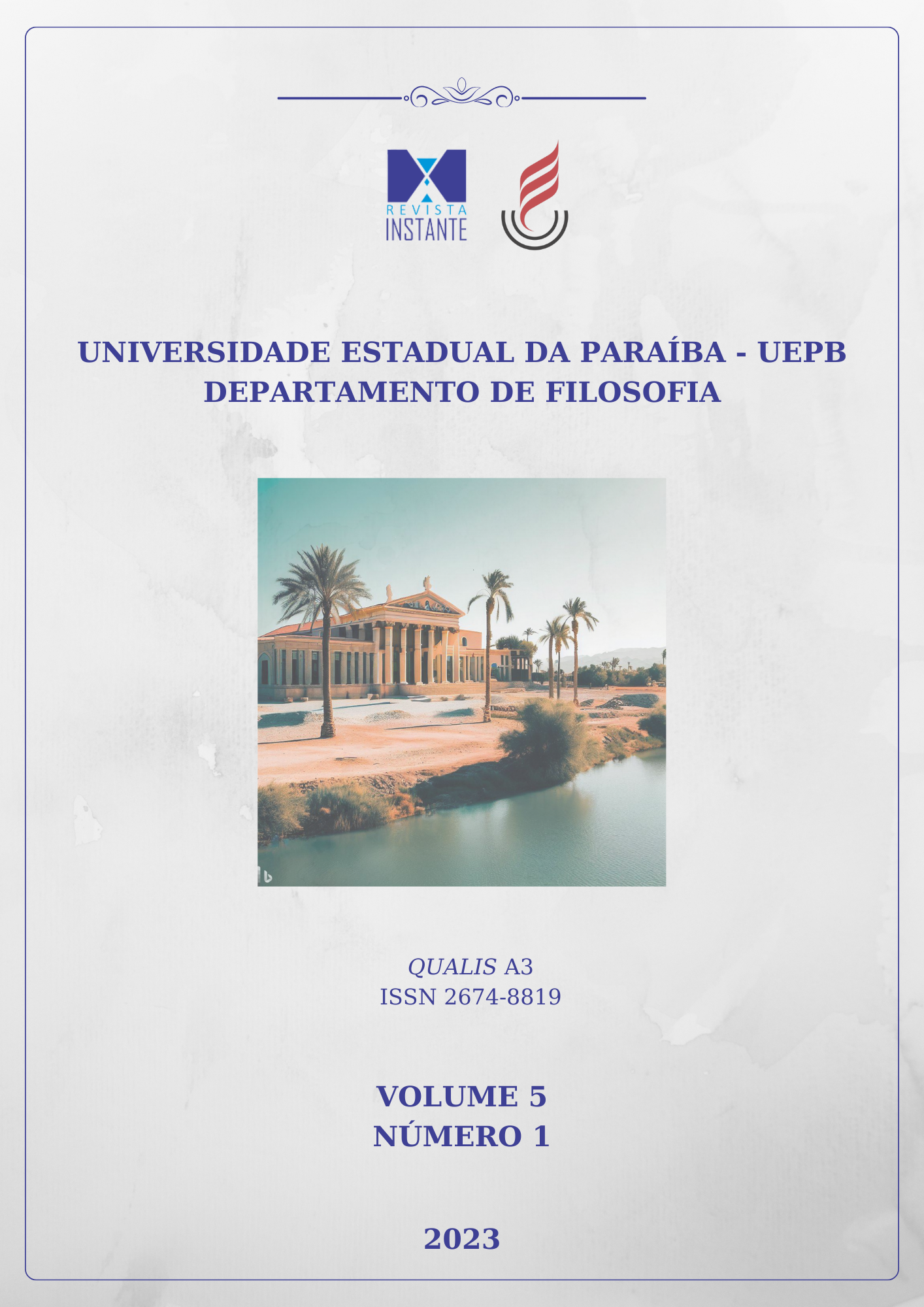O MUNDO COMO VONTADE E REPRESENTAÇÃO:
O INDIVÍDUO SCHOPENHAUERIANO E SUA RELAÇÃO ÉTICA COM O UNIVERSO
Palavras-chave:
Schopenhauer. Vontade. Mundo. Representação. Compaixão.Resumo
Nossa reflexão, aqui desenvolvida, visa analisar os conceitos de representação e vontade em Arthur Schopenhauer (1788-1860), baseando-se na obra “O Mundo como Vontade e como Representação”, tomos I e II do filósofo em questão, e a contribuição de outros pensadores acerca da referida obra. Schopenhauer trabalha a relação sujeito – sua interpretação e sua interferência – e objeto no mundo enquanto discurso desse mesmo sujeito. Neste intuito, analisamos como a teoria do filósofo se mostra de forma prática no cotidiano do indivíduo. Constatamos que a vontade não é mera faculdade do indivíduo, mas uma instância atuante e dominante em todo ser, de forma que ela é considerada pelo pensador como essência do mundo e causa de sofrimento e insatisfação, deixando o indivíduo insaciável; esse mesmo mundo é pura representação do sujeito pensante. Schopenhauer foi bastante influenciado pela filosofia kantiana, entre outros, e teorizou sobre a “coisa em si” (noumenon) e o “fenômeno” (aparição) de forma profunda e abrangente. Ressaltamos, contudo, a importância do corpo na construção desse filosofar, sem o qual a representação e a vontade não seriam concretizadas. Além do mais, a exposição da ética schopenhaueriana é também visitada nesta reflexão, pois, ela ocupa em espaço de destaque no confronto contra o egoísmo presente em todas as épocas. Eis aí uma metafísica imanente, a compaixão, o verdadeiro fundamento da moral.
Referências
ABBAGNANO, Nicola. Dicionário de filosofia. São Paulo: Martins Fontes, 2012.
BARBOSA, Jair. Schopenhauer: a decifração do enigma do mundo. São Paulo: Paulus, 2015. Coleção Como Ler Filosofia.
CUNHA, Antônio Geraldo da. Dicionário etimológico da língua portuguesa. 4. ed. rev. pela nova ortografia. Rio de Janeiro: Lexikon, 2013.
DEBONA, Vilmar. Schopenhauer. São Paulo: Ideias e Letras, 2019.
FREUD, Sigmund. História de uma neurose infantil: (“o homem dos lobos”): além do princípio do prazer e outros textos (1917-1920). Tradução de Paulo César de Souza. São Paulo: Companhia das Letras, 2010.
GOLDIM, José Roberto. Compaixão, simpatia e empatia. 2006. Disponível em: https://www.ufrgs.br/bioetica/compaix.htm. Acesso em: 7 mar. 2023.
KANT. Immanuel. Crítica da razão pura. 2. ed. Petrópolis: Vozes, 2013. (Coleção pensamento Humano).
LAPLANCHE, Jean. Vocabulário de psicanálise. 4. ed. São Paulo: Martins Fontes, 2001.
PASCAL, Blaise. Pensamentos: vida e obras. São Paulo: Nova Cultural, 2005.
ROGER, Alain. Vocabulário de Schopenhauer. São Paulo: Martins Fontes, 2013. (Coleção Vocabulário do Filósofos).
SCHOPENHAUER, Arthur. As dores do mundo: o amor, a morte, a arte, a moral, a religião, a política, o homem e a sociedade. Tradução de José Souza de Oliveira. São Paulo: EDIPRO, 2014.
SCHOPENHAUER, Arthur. Metafísica do belo. Tradução de Jair Barbosa. São Paulo: Unesp, 2003.
SCHOPENHAUER, Arthur. O Mundo como vontade e representação. Tomo I. Tradução, apresentação, notas e índices de Jair Barbosa. São Paulo: Unesp, 2015.
SCHOPENHAUER, Arthur. O Mundo como vontade e representação. Tomo II. Tradução, apresentação, notas e índices de Jair Barbosa. São Paulo: Unesp, 2015.
SCHOPENHAUER, Arthur. Sobre a quadrúplice raiz do princípio de razão suficiente. Tradução de Oswaldo Giacoia Junior e Gabriel Valladão Silva. Campinas: Unicamp, 2020.
SCHOPENHAUER, Arthur. Sobre a liberdade da vontade. Tradução de Lucas Lazarini Valente e Eli Vagner Francisco Rodrigues. São Paulo: Unesp, 2021.
SIMMEL, Georg. Schopenhauer e Nietzsche. Tradução de César Benjamin. Rio de Janeiro: Contraponto, 2011.
SPINOZA, Benedictus de. Ética. 3. ed. Tradução de Tomaz Tadeu. Belo Horizonte: Autêntica, 2013.










